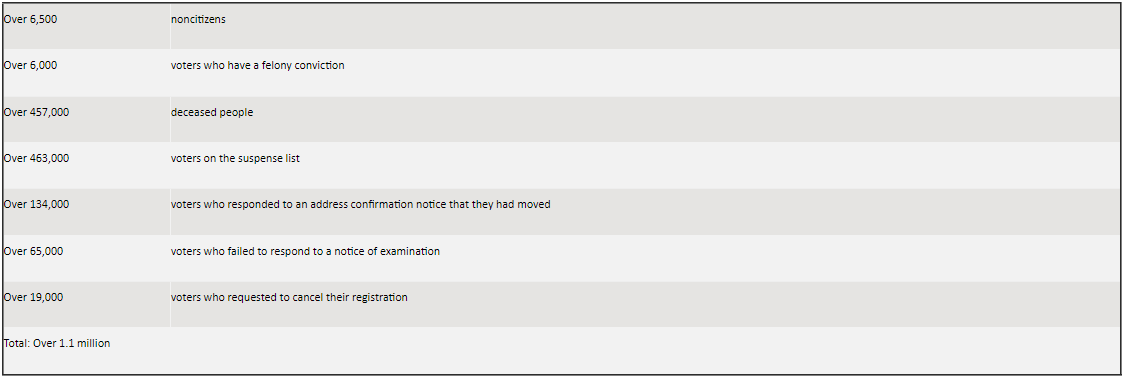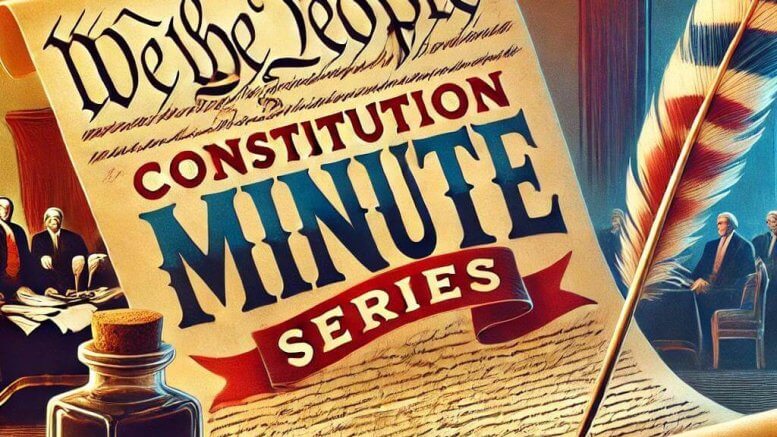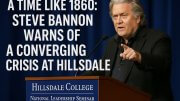Election integrity is the cornerstone of a functioning democracy, ensuring that every eligible vote is counted and every ineligible vote is excluded. In Texas, Governor Greg Abbott has taken significant steps to safeguard this principle, most notably by removing over one million ineligible voters from the state’s voter rolls. This effort, initiated after the signing of Senate Bill 1 in 2021, reflects a broader commitment to upholding the constitutional right to free and fair elections.
The Facts Behind the Removal of Ineligible Voters
Since 2021, more than 1.1 million ineligible voters have been purged from Texas’ voter rolls, including over 457,000 deceased individuals, more than 6,000 with felony convictions, and over 6,500 potential noncitizens. Of the noncitizens removed, approximately 1,930 have a voter history, raising concerns about illegal voting. The Texas Secretary of State’s office is currently forwarding these cases to the Attorney General’s Office for investigation and potential legal action.
This move is part of a broader strategy to crack down on illegal voting. Last year, Governor Abbott signed House Bill 1243, which escalated the penalty for illegal voting—including voting by noncitizens—to a second-degree felony. This legislative measure underscores the seriousness with which Texas treats the sanctity of its electoral process.

Legislative Measures to Strengthen Election Integrity
The removal of ineligible voters is not an isolated effort. It follows a series of legislative actions taken by Governor Abbott to reinforce election laws in Texas:
-
Senate Bill 1 (2021): Elevated lying while registering to vote to a state jail felony, criminalized ballot harvesting, required the Secretary of State to conduct randomized audits of elections every two years, banned the distribution of unsolicited mail-in ballot applications and ballots, and required ID for mail-in ballots.
We would appreciate your donation. -
Senate Bill 1113 (2021): Empowered the Secretary of State to withhold funds from counties that fail to remove noncitizens from their voter rolls.
-
House Bill 574 (2021): Made it a second-degree felony to knowingly count invalid votes or refuse to count valid votes.
-
Senate Bill 5 (2017): Increased the penalty for election workers who knowingly permit noncitizens and other ineligible persons to vote.
These measures reflect a rigorous approach to election oversight, ensuring that the integrity of the voting process is maintained in accordance with constitutional principles. They also highlight the ongoing commitment to protecting the right to vote—a fundamental right enshrined in the U.S. Constitution.
Why Election Integrity Matters
Election integrity is crucial because it underpins the legitimacy of our democratic system. When citizens cast their votes, they trust that the process is fair, transparent, and secure. This trust is foundational to the public’s confidence in the outcomes of elections and, by extension, the elected government. If the integrity of elections is compromised, the consequences can be severe:
-
Erosion of Public Trust: If people believe that elections are rigged or manipulated, trust in the entire democratic process can erode. This loss of confidence can lead to decreased voter turnout, civil unrest, and challenges to the legitimacy of elected officials.
-
Disenfranchisement of Voters: Without strict election integrity measures, illegal votes can cancel out the votes of legitimate voters, effectively disenfranchising them. This undermines the principle of one person and vote essential to fair representation.
-
Political Polarization: Allegations of voter fraud or election misconduct can deepen divisions within society, leading to increased polarization and conflict. When disputed, election outcomes can create a cycle of bitterness and division that weakens the social fabric.
-
Threat to National Security: Weak election systems can be vulnerable to external interference, including cyber-attacks and misinformation campaigns by foreign entities. Protecting election integrity is, therefore, also a matter of national security.
-
Undermining of Democratic Institutions: When election integrity is not upheld, it can weaken democratic institutions and the rule of law. This can pave the way for authoritarianism and the erosion of individual freedoms and rights.
A Call to Action for Other Governors
The efforts in Texas serve as a vital example of how states can protect the sanctity of their electoral processes. However, this responsibility does not rest solely on Texas. Other governors across the country must take similar steps to ensure election integrity within their own states. By implementing measures that remove ineligible voters, prevent illegal voting, and uphold the rule of law, other states can fortify the democratic process and reassure citizens that every legitimate vote counts.
In these critical times, when trust in electoral systems is often questioned, such actions are not just necessary—they are imperative. As we move forward, it is the duty of every state leader to prioritize election integrity, ensuring that our democracy remains robust and that the people’s voices are genuinely and accurately represented.
This post is part of our ongoing series on the intersection of constitutional principles and current events. Stay tuned to our Constitution Minute series for more discussions on election integrity and other constitutional issues.





